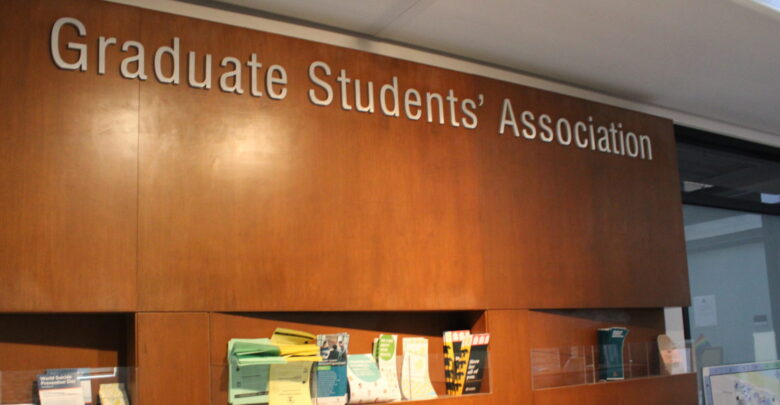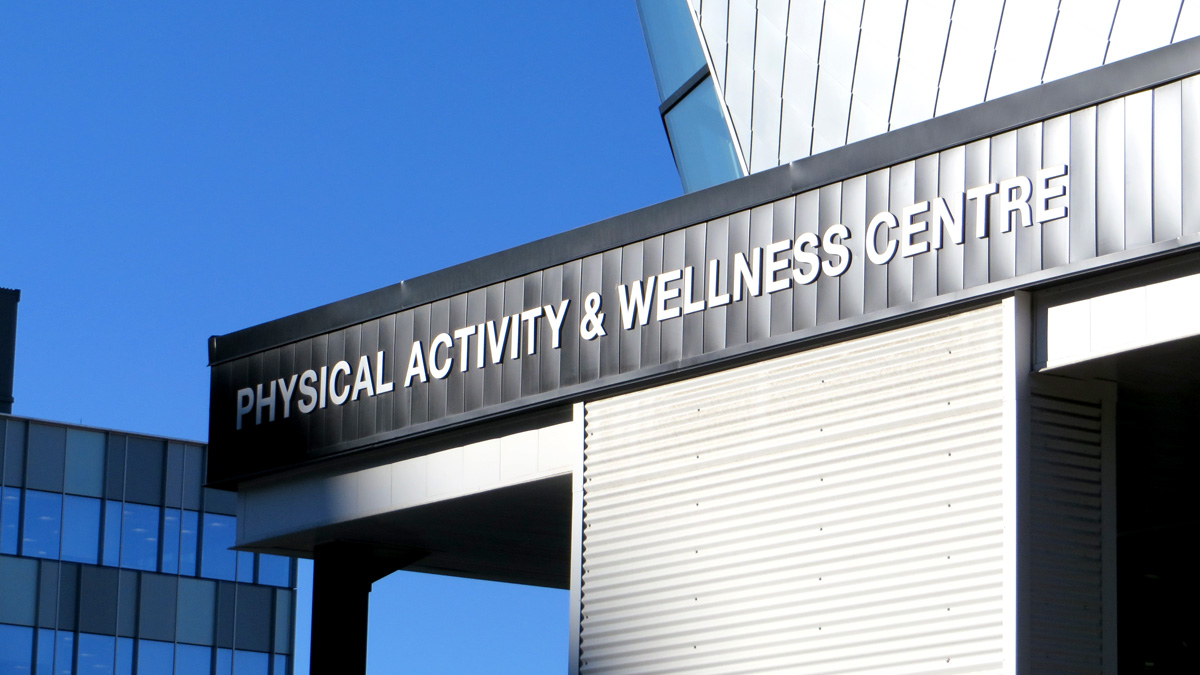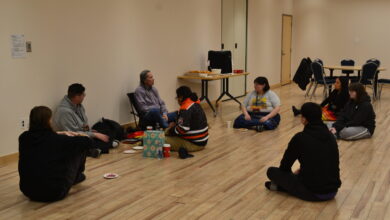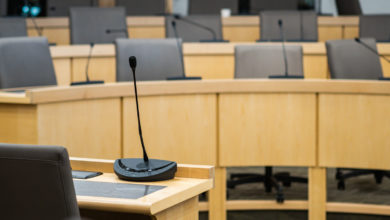GSA calls UAPS on associate vice-president (labour)
GSA staff called UAPS to remove Nathan Lamarche from the GSA office, alleging Lamarche made threats.
 Amanda Sparks
Amanda SparksOn June 19, Nathan Lamarche, the Graduate Students’ Association (GSA) associate vice-president (labour), went to the GSA’s office in Triffo Hall to pick up his keys. A GSA staff member called the University of Alberta Protective Services (UAPS) on Lamarche.
Lamarche had faced delays in getting his keys to the office since his term began on May 1. On June 11, staff told him he could let them know when he would like to pick up his key.
The Gateway obtained a video of Lamarche’s interaction with staff before UAPS removed him from Triffo Hall. In the video, a staff member told Lamarche she could not give him a key. He repeatedly questioned why she couldn’t give him a key.
The staff member told Lamarche to talk to Aashish Kumar, the president of the GSA.
Lamarche said in the video that he would be reporting the refusal to give him a key to the GSA Council.
He later clarified in an email to The Gateway that staff had not refused to give him a key prior to June 19. Lamarche said they had ignored his requests for a key.
A second video obtained by The Gateway showed two peace officers asking Lamarche to leave Triffo Hall. One officer said that staff requested the officers to remove Lamarche as they had concerns for their safety.
In the video, Lamarche said that the GSA had been harassing and publicly defaming him.
Staff allege threats, Lamarche denies the allegations
The Gateway also obtained an audio recording of Lamarche’s conversation with officers after they’d left the GSA office. An officer said that staff told UAPS that Lamarche had threatened them and, at times, held his hand in a fist when speaking to them. Lamarche denied that.
The officer also said the staff claimed that Lamarche had come to the GSA office “numerous times,” and was told he had restricted access and could not come to the GSA office.
In the audio recording, he told officers that he had only come to the GSA office three or four times. Lamarche told The Gateway in an email that he had not been told prior to being escorted from Triffo Hall that he could not enter Triffo Hall or the GSA office.
UAPS removed Lamarche from Triffo Hall and issued him a trespass notice. Lamarche is not allowed to go into Triffo Hall for one year, though he is able to appeal the trespass notice.
In an email to The Gateway, Cindy Roose, the associate director and acting executive director (ED) of the GSA, said the decision to call UAPS was due to staff safety.
“After multiple incidents, both in-person and over email, staff have reported to me that they do not feel safe engaging with Nathan Lamarche,” she said.
Roose said that staff had not yet been able to notify Lamarche that his key access had been removed before he went to the GSA office.
“I accept responsibility that this decision was not communicated in a timely manner,” Roose wrote.
She said that as acting ED, it is her responsibility to make sure staff have a safe working environment. The decision to remove Lamarche’s key access “has not been taken lightly,” but Roose believes it is in the best interest for staff.
Petition against GSA “election fraud” circulated
Lamarche has been a vocal critic of the GSA, particularly around the 2025–26 budget proposal and the rescission of the vice-president (Indigenous relations) (VPIR) appointment.
As of June 16, Lamarche had sent out an email to graduate students at the U of A with a petition “against election fraud.” The petition called for the GSA to reinstate Tamara Dubé’s appointment to VPIR by the Indigenous Graduate Students’ Association (IGSA). Lamarche is also calling for council to remove Roose, finance and HR manager Dorota Dziekan, Kumar, Vice-president (academic) Chen Okafor, Chair of the Elections and Referenda Committee (ERC) Elsie Osei, and Vice-chair of the ERC Ibrahim Khodabocus from their roles.
Linked in the petition was also a Google Drive folder labelled “election fraud evidence.” It contained various emails, recordings, meeting minutes, and a draft of a constitution for the GSA that Lamarche is working on. As of June 20, the folder contained 61 files and three documents of statements by student groups and petition respondents.
The GSA emailed a statement to graduate students on June 19 regarding the petition and Google Drive folder, which The Gateway obtained.
The statement said the petition may have caused “confusion, concern, or harm to members of our community.”
“The Board sincerely apologizes that an individual affiliated with the GSA has misrepresented the Association and has chosen to circulate improper and misleading materials that do not reflect the values or practices of the GSA.”
The statement addressed “xenophobic and discriminatory language” that has “appeared in some of the emails and responses associated with this matter.”
It did not specify what emails or responses were considered xenophobic or discriminatory, nor who made those allegedly xenophobic comments.
Disagreement over student petitions under the PSLA
The GSA’s statement also said that some of the materials Lamarche was circulating contained misinformation and inaccuracies.
The statement said “claims made in these messages represent a personal interpretation that is not grounded in fact or governance best practice.”
It also stated that the claim in the petition that signatures from 10 per cent of the graduate student body would require the implementation of the petition’s demands was false.
Section 98(1) of the Post-Secondary Learning Act (PSLA) states that a student petition may “require the council of the student organization to conduct a vote on and implement any resolution pertaining to the affairs of the student organization.”
The GSA bylaws do not have rules regarding petitions, so under the PSLA the threshold for requiring council to conduct a vote on and implement a resolution is 10 per cent of the GSA’s members.
Lamarche’s petition said that “this language makes it clear that the petition shall require the GSA to implement this resolution, regardless of the outcome of their vote.”
The GSA’s statement also claimed that the materials contained defamatory content and violated privacy law and the U of A’s privacy policy. It encouraged students to report the “privacy breach” to the U of A’s Information and Privacy Office.
The statement also encouraged those who “feel harmed or affected by these actions” to file a complaint with the GSA’s Appeals and Complaints Board, the Office of the Dean of Students, or the Office of Safe Disclosure and Human Rights.
The statement said that GSA management had made “temporary adjustments to office access for the individuals involved, pending further review.”
“These steps are part of our normal duty of care to protect staff and members, and do not restrict the individual’s ability to perform their elected duties through other appropriate channels.”
CORRECTION: A correction was issued on June 20 at 3:58 p.m. to correct a statement that mistakenly said that Lamarche’s petition was asking for all GSA executives to be removed. The petition calls for two staff members, GSA president and vice-president (academic), as well as the chair and vice-chair of the ERC to be removed. The Gateway regrets this error.
UPDATE: An update was issued on June 21 at 12:40 p.m. to include the names of two staff members the petition is calling to be removed from their positions.




